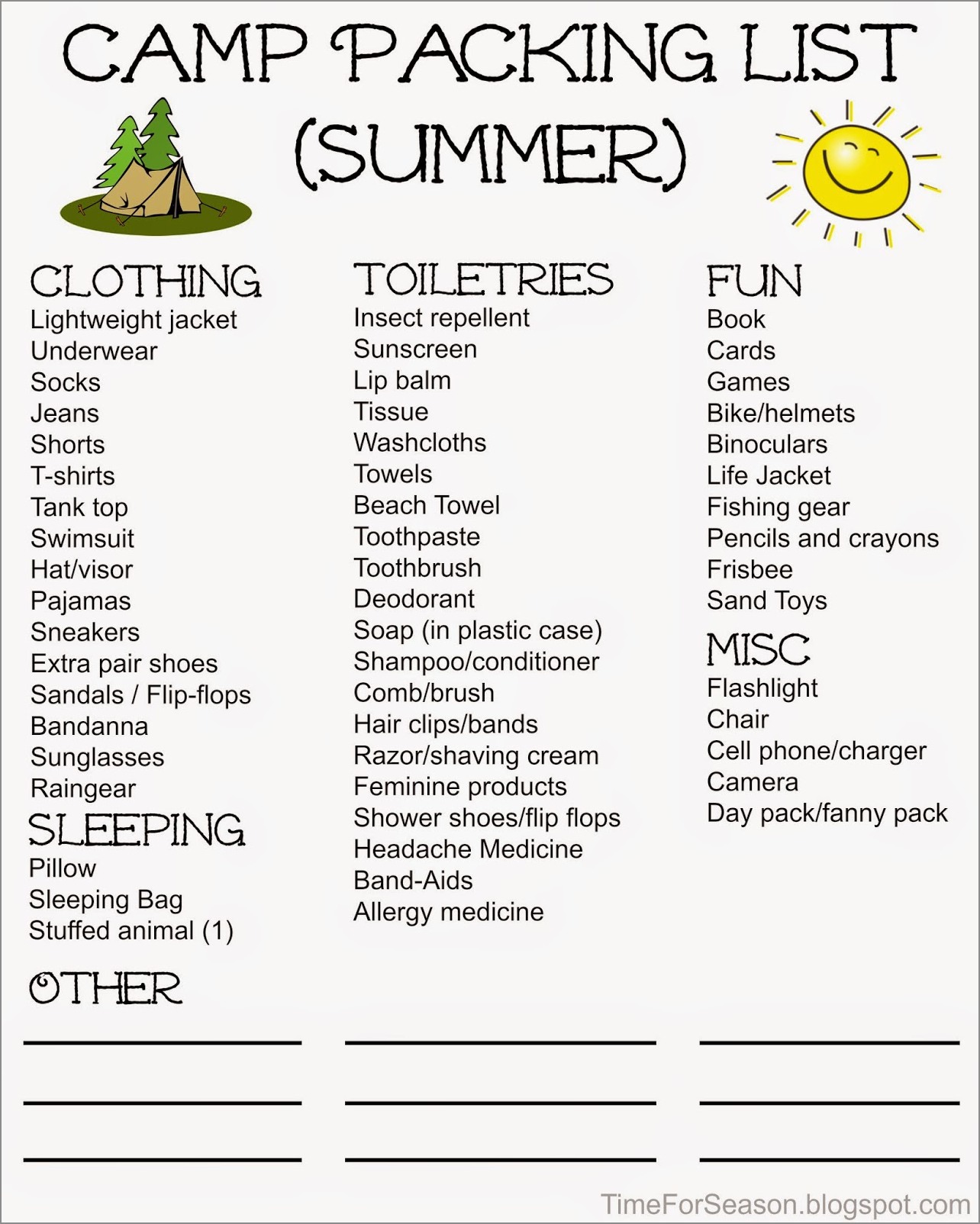Are you excited about your upcoming camping trip but feeling overwhelmed by the thought of packing? Don’t worry, we’ve got you covered!
In this article, we will provide you with a comprehensive camp packing list to ensure you have everything you need for a memorable and hassle-free adventure in the great outdoors. From clothing essentials to camping gear and personal items, we’ve got all the bases covered. So grab a pen and paper, and let’s get started!
Clothing Essentials for Your Camping Trip
When it comes to packing clothes for your camping trip, it’s important to consider the weather conditions and the activities you’ll be participating in. Here are the essential clothing items you should pack:
- Comfortable and lightweight clothing: Pack a mix of short-sleeved and long-sleeved shirts, shorts, pants, and lightweight jackets. Opt for moisture-wicking fabrics to keep you dry and comfortable.
- Sturdy hiking boots: Invest in a good pair of hiking boots that provide ankle support and have a good grip to navigate various terrains.
- Socks and underwear: Pack enough socks and underwear for the duration of your trip, plus a few extra pairs.
- Swimsuit: If there’s a chance to take a dip in a lake or go swimming, don’t forget your swimsuit.
- Pajamas: Don’t underestimate the importance of a good night’s sleep. Pack comfortable pajamas to ensure a restful night in the wilderness.
- Rain gear: Be prepared for unexpected showers by packing a waterproof jacket and pants.
- Hat and sunglasses: Protect yourself from the sun’s rays by packing a hat and sunglasses.
- Gloves and beanie: If you’re camping in colder temperatures, pack gloves and a warm beanie to keep you cozy.
Camping Gear: Must-Have Items for Your Outdoor Adventure
Having the right camping gear can make a world of difference in your outdoor experience. Here are the essential camping items you should pack:
- Tent: Choose a tent that accommodates the number of people in your group and is suitable for the weather conditions you’ll be camping in.
- Sleeping bag and sleeping pad: Invest in a good quality sleeping bag that is suitable for the temperatures you’ll be camping in. Don’t forget a sleeping pad for added comfort.
- Camping stove and cookware: If you plan on cooking your meals, pack a portable camping stove and some basic cookware.
- Food and water: Plan your meals and pack non-perishable food items that are easy to prepare. Don’t forget to bring enough water for drinking and cooking.
- Camp chairs and table: Make your camping experience more comfortable by packing foldable camp chairs and a portable camping table.
- Flashlights and lanterns: Don’t get caught in the dark! Pack flashlights and lanterns, along with extra batteries.
- Multi-tool: A multi-tool can come in handy for various tasks such as opening cans, repairing gear, and cutting rope.
- First aid kit: Be prepared for any minor injuries or illnesses by packing a well-stocked first aid kit.
Personal Items: Don’t Forget the Essentials
While camping is all about disconnecting from the outside world, there are still some personal items you shouldn’t forget to pack. Here are the essential personal items for your camping trip:
- Toiletries: Pack travel-sized toiletries such as toothpaste, toothbrush, soap, shampoo, and toilet paper.
- Towel: Don’t forget a quick-drying towel for personal hygiene.
- Sunscreen and insect repellent: Protect yourself from the sun’s harmful rays and pesky bugs by packing sunscreen and insect repellent.
- Medications: If you take any prescription medications, be sure to pack enough for the duration of your trip.
- Personal documents: Keep your identification, insurance cards, and emergency contact information in a waterproof bag.
- Cash and cards: It’s always a good idea to have some cash and cards on hand for emergencies or unexpected expenses.
- Entertainment: Pack some books, games, or a deck of cards to keep yourself entertained during downtime.
Campfire Safety: Important Tips to Remember
A campfire is often a central part of the camping experience. However, it’s crucial to prioritize safety to prevent accidents and wildfires. Here are some important campfire safety tips to remember:
- Check fire regulations: Before starting a fire, check for any fire bans or restrictions in the area.
- Choose a proper fire pit: If there’s an existing fire pit, use it. Otherwise, select a safe location away from trees, bushes, and tents.
- Clear the area: Remove any flammable materials, such as dry leaves and branches, from the fire pit area.
- Keep it small: Don’t build a fire larger than you can safely manage.
- Never leave it unattended: Always ensure someone is supervising the fire and never leave it unattended.
- Extinguish it properly: When you’re ready to put out the fire, pour water over the flames and embers, and stir the ashes until they’re cool to the touch.
Leave No Trace: Preserve the Beauty of Nature
As outdoor enthusiasts, it’s our responsibility to leave our camping sites as we found them, if not better. Here are some principles of Leave No Trace to follow:
- Plan and prepare: Research the camping area, pack responsibly, and be prepared for various weather conditions.
- Dispose of waste properly: Pack out all your trash and dispose of it in designated receptacles.
- Leave what you find: Avoid taking any natural objects or artifacts from the camping area.
- Respect wildlife: Observe wildlife from a distance and avoid feeding or approaching them.
- Be considerate of other campers: Keep noise levels down, respect others’ privacy, and follow any posted rules or regulations.
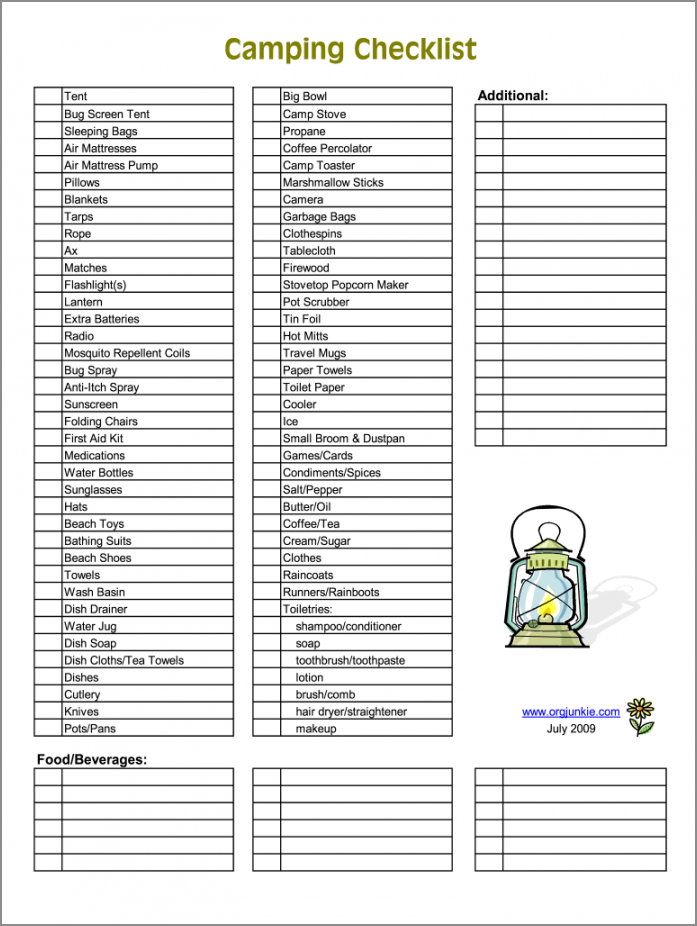
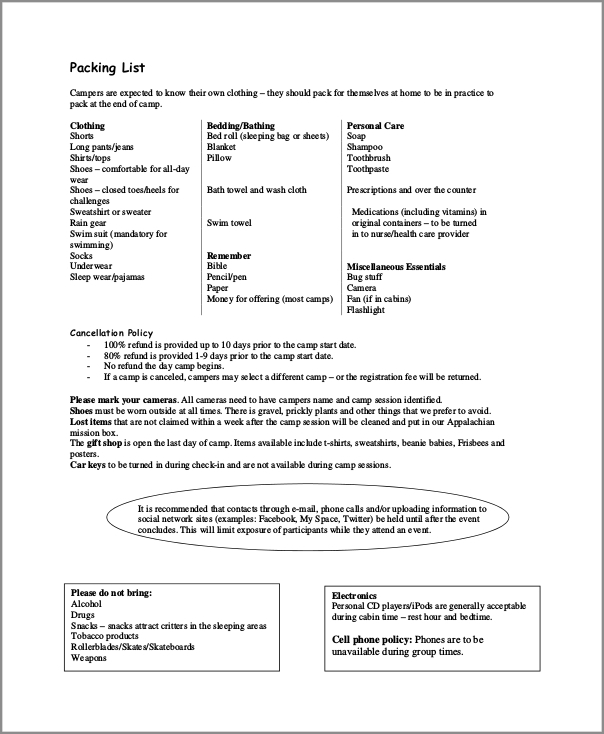
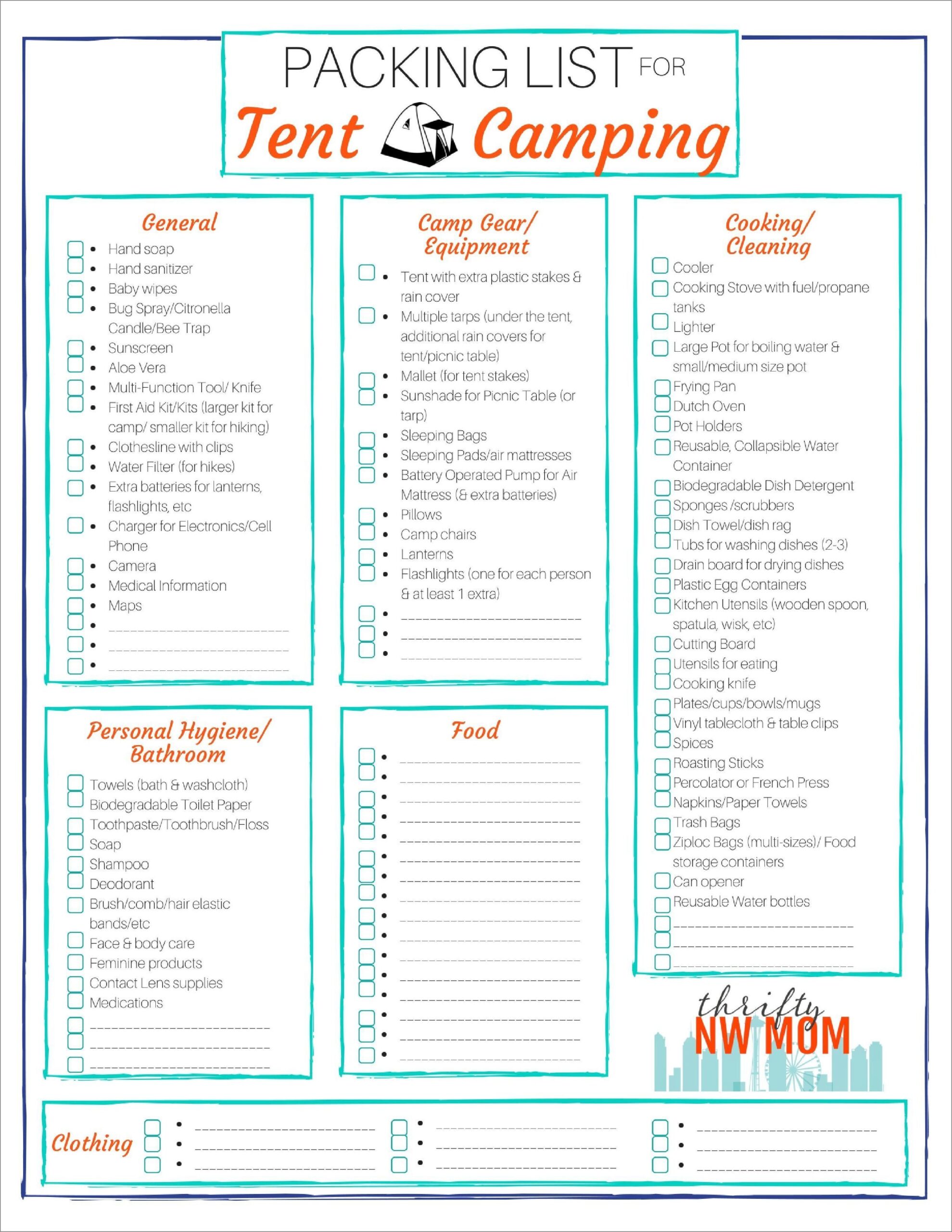
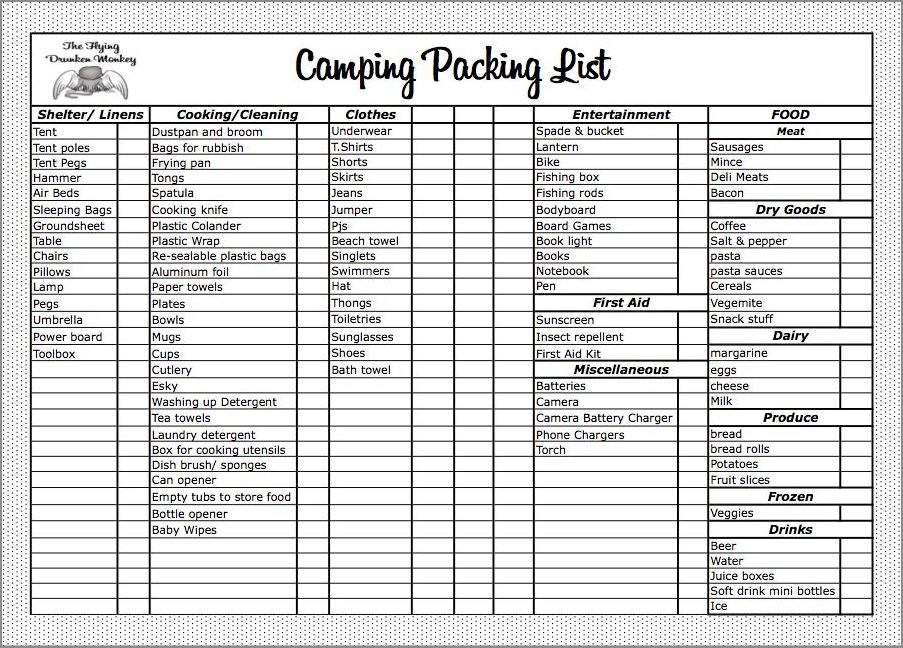
Conclusion
With this ultimate camp packing list, you can now embark on your camping adventure fully prepared and ready for a fantastic time in nature. Remember to tailor the list to your specific needs and consider the duration and location of your trip. By packing the essentials and following safety guidelines, you’ll be able to enjoy a stress-free and enjoyable camping experience. So grab your gear, embrace the outdoors, and create lifelong memories!
Camp Packing List Template Excel – Download
